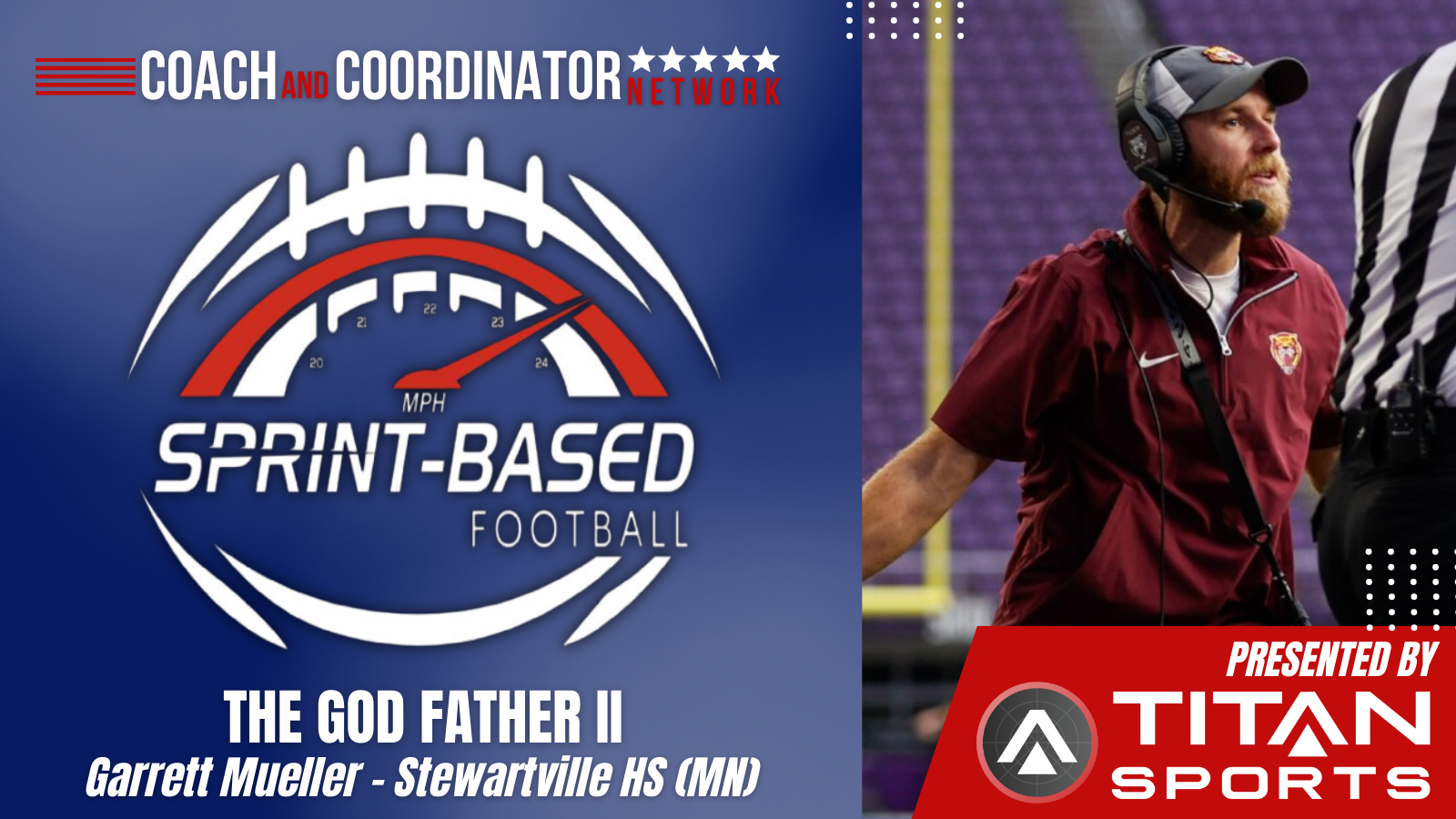
In this episode of Sprint Base Football presented by Titan Sports, Tony Holler interviews Garrett Mueller, a back-to-back state champion head coach who has implemented sprint-based training methods. They discuss the evolution of coaching from traditional methods to a more modern approach that emphasizes speed, shorter practices, and less conditioning.
Mueller shares insights on how these changes have positively impacted player performance and overall team success, including the development of athletes across multiple sports. The conversation also addresses skepticism from traditionalists and the importance of metrics like the truck stick in evaluating player potential.
In this conversation, Garrett Mueller discusses the implementation of innovative metrics and technology in football coaching, particularly focusing on the ‘truck stick’ metric and the use of GPS technology to monitor player performance. He emphasizes the importance of understanding practice loads and game preparation to prevent injuries and enhance player performance. The discussion also highlights the significance of a positive coaching culture and the development of youth athletes through sprint-based training.
Chapters
- Transitioning from Old School to New School Coaching
- The Impact of Shorter Practices and Less Conditioning
- The Concept of Speed Reserve in Football
- Playing Violent: The Connection Between Health and Performance
- Creating a Positive Experience for Young Athletes
- Cross-Sport Benefits of Sprint-Based Training
- Overcoming Skepticism in Coaching Methods
- Developing Athleticism in Big Players
- The Importance of Speed for All Positions
- Understanding the Truck Stick Metric
- The Role of Speed in Football Success
- Conclusion and Future of Sprint-Based Football
- Introduction of the Truck Stick Metric
- Implementing GPS Technology in Football
- Understanding Practice Load and Game Preparation
- Managing Player Load to Prevent Injuries
- The Importance of Coaching Culture
- Youth Development and Sprint-Based Training


